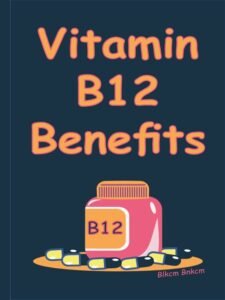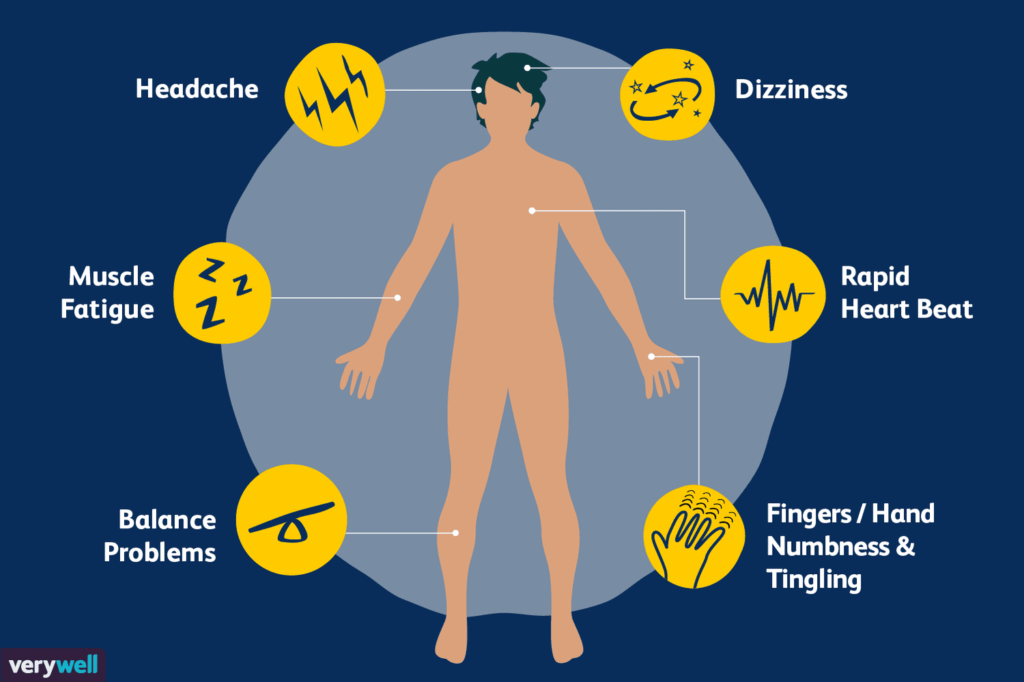Introduction Wellhealthorganic Vitamin B12
Vitamin B12, also known as cobalamin, is a crucial water-soluble vitamin that plays a vital role in maintaining overall health. It is essential for the formation of red blood cells, DNA synthesis, and proper neurological function. Despite its importance, many people may not get enough Vitamin B12 through their diet alone, which can lead to deficiencies and related health issues. This guide explores the benefits of Vitamin B12, its sources, and how it can be incorporated into your diet to enhance your well-being.
The Importance of Vitamin B12
1. Red Blood Cell Formation
- Prevention of Anemia: Vitamin B12 is essential for producing red blood cells. A deficiency in B12 can lead to megaloblastic anemia, where red blood cells are larger than normal and not fully developed, leading to symptoms such as fatigue and weakness.
- Oxygen Transport: Healthy red blood cells are crucial for transporting oxygen throughout the body. Adequate Vitamin B12 levels ensure efficient oxygen delivery to tissues and organs, supporting overall energy levels.
2. Nervous System Health
- Nerve Function: Vitamin B12 is crucial for maintaining the myelin sheath, a protective covering around nerves. This sheath is essential for proper nerve function and signal transmission. A deficiency can lead to neurological symptoms such as numbness, tingling, and difficulty walking.
- Brain Health: Adequate B12 levels support cognitive function and memory. Deficiency has been linked to cognitive decline and mood disturbances, making it important for mental health and overall brain function.
3. DNA Synthesis
- Genetic Material: Vitamin B12 plays a critical role in DNA synthesis and repair. Proper DNA function is vital for cell division and growth, affecting overall health and development.
- Cellular Function: Adequate B12 levels ensure the proper functioning of cells throughout the body, supporting various biological processes and maintaining cellular health.
4. Energy Production
- Metabolism: Vitamin B12 is involved in converting carbohydrates, fats, and proteins into energy. It supports metabolic processes that help maintain energy levels and prevent feelings of fatigue.
- Fatigue Reduction: A deficiency in B12 can lead to decreased energy levels and feelings of tiredness. Ensuring sufficient intake helps maintain optimal energy and vitality.
Sources of Vitamin B12
1. Animal-Based Foods
- Meat and Poultry: Beef, pork, chicken, and turkey are excellent sources of Vitamin B12. Incorporating these foods into your diet can help meet your daily B12 needs.
- Fish and Seafood: Fish such as salmon, tuna, and trout, as well as shellfish like clams and mussels, are rich in Vitamin B12. Regular consumption supports adequate intake.
- Dairy Products: Milk, cheese, and yogurt contain significant amounts of Vitamin B12. Including dairy products in your diet helps ensure sufficient B12 intake.
2. Fortified Foods
- Fortified Cereals: Many breakfast cereals are fortified with Vitamin B12. Choosing fortified cereals can help increase your B12 intake, especially for those who may have dietary restrictions.
- Fortified Plant-Based Milks: Some plant-based milks, such as soy, almond, and oat milk, are fortified with Vitamin B12. These alternatives provide a source of B12 for those following vegetarian or vegan diets.
3. Supplements
- Oral Supplements: Vitamin B12 supplements are available in various forms, including tablets, capsules, and gummies. Supplements are a convenient option for those who may not get enough B12 from food sources.
- Sublingual Tablets: These tablets dissolve under the tongue and can be a more effective option for individuals with absorption issues. They provide a direct and efficient way to increase B12 levels.
Recommended Daily Intake
- General Guidelines: The recommended daily intake of Vitamin B12 varies based on age, gender, and life stage. For adults, the recommended daily allowance (RDA) is approximately 2.4 micrograms. Pregnant and breastfeeding women have higher requirements.
- Consultation with Healthcare Providers: It is important to consult with a healthcare provider to determine the appropriate dosage of Vitamin B12 based on individual needs and health conditions.
Signs of Vitamin B12 Deficiency
1. Fatigue and Weakness
- Lack of Energy: Individuals with Vitamin B12 deficiency may experience fatigue, weakness, and a lack of energy due to impaired red blood cell production and oxygen transport.
2. Neurological Symptoms
- Numbness and Tingling: Deficiency can lead to neurological symptoms such as numbness, tingling in the extremities, and difficulty walking.
- Cognitive Changes: Memory problems, confusion, and mood changes may occur due to the impact of B12 deficiency on brain function.
3. Digestive Issues
- Digestive Problems: Deficiency may lead to digestive issues such as loss of appetite, weight loss, and gastrointestinal discomfort.
Managing Vitamin B12 Levels
1. Balanced Diet
- Diverse Diet: Incorporating a variety of B12-rich foods into your diet helps ensure adequate intake. Include sources such as meat, fish, dairy products, and fortified foods.
- Dietary Adjustments: For individuals with dietary restrictions or specific health conditions, consider fortified foods or supplements to meet B12 needs.
2. Regular Monitoring
- Blood Tests: Regular blood tests can help monitor Vitamin B12 levels and detect deficiencies early. Consult with a healthcare provider for appropriate testing and diagnosis.
- Supplementation: If deficiency is detected, supplements may be recommended to restore adequate B12 levels and prevent associated health issues.
Importance of Vitamin B12
Vitamin B12 is crucial for several bodily functions, including:
1. Energy Production: It helps convert food into energy, reducing fatigue.
2. Nerve Health: Supports the maintenance of the nervous system, preventing nerve damage.
3. Red Blood Cell Formation: Essential for the production of healthy red blood cells, preventing anemia.
Benefits of WellHealthOrganic Vitamin B12
 WellHealthOrganic Vitamin B12 supplements offer several benefits:
WellHealthOrganic Vitamin B12 supplements offer several benefits:
– Improved Energy Levels: Regular intake can combat tiredness and boost energy.
– Enhanced Brain Function: It may improve memory and reduce the risk of cognitive decline.
– Better Mood Regulation: B12 supports serotonin production, which can enhance mood and reduce symptoms of depression.
Who Needs Vitamin B12?
Certain groups are more at risk of B12 deficiency:
– Vegans and Vegetarians: B12 is mainly found in animal products, making supplements crucial for those on plant-based diets.
– Older Adults: Absorption decreases with age, increasing the risk of deficiency.
– Individuals with Digestive Disorders: Conditions like Crohn’s disease or celiac disease can hinder absorption.
Signs of Vitamin B12 Deficiency

Common symptoms of deficiency include:
– Fatigue and weakness
– Pale or jaundiced skin
– Nerve problems, like tingling or numbness
– Difficulty thinking and memory loss
| Category | Details |
|---|---|
| Product Name | Wellhealthorganic Vitamin B12 |
| Form | Tablets, Capsules, Sublingual Drops |
| Active Ingredient | Methylcobalamin |
| Dosage | 1000 mcg per tablet/capsule/drop |
| Recommended Use | 1 tablet/capsule/drop daily or as directed by a healthcare provider |
| Bioavailability | High, due to the use of Methylcobalamin |
| Suitable For | Vegetarians, Vegans, Older Adults, Athletes |
| Free From | Gluten, Soy, Dairy, Artificial Colors, and Preservatives |
| Certifications | GMP Certified, Third-Party Tested |
| Packaging | Recyclable, BPA-Free Containers |
| Storage Instructions | Store in a cool, dry place, away from direct sunlight |
| Shelf Life | 2 years from the date of manufacture |
| Health Benefits | Energy Boost, Improved Mental Clarity, Red Blood Cell Formation, Neurological Health |
| Potential Side Effects | Rare; may include dizziness, headache, nausea |
| Price Range | $15 – $30 per bottle (60 tablets/capsules/drops) |
| Availability | Online and in select health stores |
| Customer Rating | 4.8/5 based on customer reviews |
| Company Mission | Promote holistic health through high-quality, natural supplements |
| Customer Support | 24/7 support via email and phone |
What is Vitamin B12?

Vitamin B12, also known as cobalamin, is a water-soluble vitamin that plays a pivotal role in the functioning of the brain and nervous system. It’s also essential for the formation of red blood cells and DNA synthesis. Chemically, it contains the mineral cobalt and can be found in several forms, including cyanocobalamin and methylcobalamin.
Benefits of Vitamin B12

Energy Production
One of the primary benefits of Vitamin B12 is its role in energy production. It helps convert carbohydrates into glucose, which your body uses for energy. If you’re feeling fatigued, low B12 levels might be the culprit.
Red Blood Cell Formation
Vitamin B12 is essential for the production of red blood cells. Without adequate B12, red blood cells can become abnormally large and fail to divide properly, leading to anemia.
Neurological Health
Vitamin B12 plays a significant role in maintaining neurological health. It helps in the production of myelin, a protective sheath that covers your nerves. A deficiency can lead to neurological issues, including memory loss and mood changes.
DNA Synthesis
Every cell in your body needs DNA to function properly. Vitamin B12 is crucial for DNA synthesis, ensuring that cells divide correctly and function optimally.
Conclusion
Vitamin B12 is a vital nutrient with a significant impact on overall health, including red blood cell formation, nervous system function, DNA synthesis, and energy production. Ensuring sufficient intake through a balanced diet, fortified foods, and supplements is essential for maintaining optimal health. Understanding the sources and benefits of Vitamin B12, as well as recognizing the signs of deficiency, can help individuals make informed decisions about their nutritional needs and well-being.

